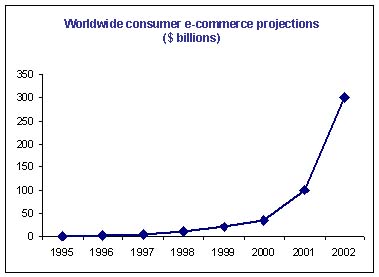 |
REVIEW |
|||||
|
INTRODUCTIONAfter Alexander Graham Bell invented the telephone in 18 century, it became a great part of our lifes. The development of communication technology has never stopped since. After some time a new technology was born, the Internet. That spawned thousands of new ways of communication, with Electronic Mail being the most popular, till today. Its ability to provide free and fast communication, made it extremely popular in every kind of area, either commercial or residential. The original idea for the Internet was a network called ARPANET, designed and developed in 1969 by the US. Initially ARPANET was a network connecting university, military and defence contractors, however, while the ARPANET was growing, other networks were also under development. In 1973, approximately 10 years before the personal computer revolution, a project was undertaken called the Internetting project. The aim of this project was to find some way to connect all of these expanding networks into a single large network but because most of the networks had been developed individually, they tended to use different protocols to transfer data. In order to allow all the different networks to communicate, a common protocol was needed. In 1974, TCP/IP (Transmission Control Protocol/Internet Protocol) was developed and Internet came to life. Today however, communication is not the only reason internet is used for. It is imperative for every business that respects it self, to have a web page, through which it will make its services and/or products known and available to a wider spectrum of people. That new facility became known as E-commerce. E-commerce is already playing a great role in our lifes and the worldwide economy. Every day that passes, its influence on companies and the way they function, is increasing at a geometrical rate. Below we can see a rough approximation of e-commerces's growth.
As technology progresses so will e-commerce, resulting from the fact that one closely depends on the other. As long as technology finds faster and more efficient ways of communication, the more reliable and less time-consuming e-commerce will be. As a result, customer's trust to this new way of making business will increase too. Our only wish is for e-commerce to to have the same impact on the energy market. It has all begun with favourable auspices, and since the importance of energy to people is unmachable to quite much everything else, the only thing left for us to do is to sit back and watch it happen! Lots of conclusions can be made from this fact: “just 10% of physical natural gas was traded in US via electronic trading systems in 1998 approximately 25% of the total Internet-based electronic commerce economy for the entire year.” |
|||||
|





